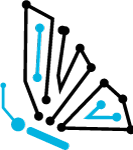Robert Aboukhalil

“Computing is not so much about computers as it is about solving problems.”
Ph.D. student, Cold Spring Harbor, United States
Degree(s):
B.Eng., McGill University
Ph.D., Cold Spring Harbor Laboratory (in progress)
How I got here…
My first encounter with a computer was in 1999: I was 10 years old and my parents had just bought our first PC. Once they pressed the “on” button, the monitor lit with the “Windows 98 Setup” screen; I’ve been hooked on computers ever since.
Reading books and websites, I came to understand how computers work and how to write software. I also enjoyed reading about evolution and genetics, which led me to work on summer projects during my undergraduate degree. There, I explored diverse topics in the life sciences and applied my computational knowledge to interesting biological problems.
An awesome project
During my undergraduate degree, I enrolled in a ‘Design Principles & Methodologies’ course, teaming up with 4 other students to build two robots that collaborate to perform a delicate task: lifting a heavy object.
One of our robots navigated a field autonomously while avoiding obstacles and looking for the red balls scattered across the field. Once a red ball is found, the first robot communicates via Bluetooth to the second, and arranges that they meet.
Once the second robot joins the first one, they lift the ball together, after which one of them drops the ball into a designated container.
Life outside of work
I believe that science without communication is irrelevant, which is why I made it one of my endeavors to communicate science to the public in an engaging way. When I’m not “computing”, I’m the Editor-in-Chief of Technophilic Magazine, a science/engineering magazine published at McGill and CSHL.
I’m also a Science Writing Mentor for the Journal of Young Investigators, where I guide students in creatively communicating science to the public. I have taught interactive classes at the DNA Learning Center to middle and high-school students about the science behind common molecular biology experiments, while guiding them through laboratory experiments they undertake.
Read more about Robert Aboukhalil (PDF, 134.89 KB)



























